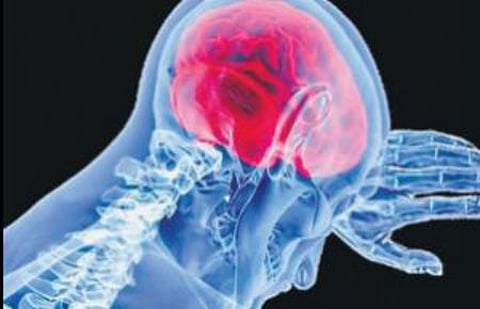

THIRUVANANTHAPURAM: Two more persons were confirmed with amoebic meningoencephalitis in Thiruvananthapuram, taking the number of confirmed cases in the district to seven, while two others were under observation for symptoms on Wednesday. One person died of the infection on July 23 in the district, while the rest are under treatment at the Thiruvananthapuram Government Medical College Hospital (MCH).
The infection has been confirmed in 15 people in the state this year so far, two of whom have recovered. In the past two months, eight cases, including those involving children, were reported in Malappuram, Kozhikode, Kannur, and Thrissur.
As the caseload rises, the Institute of Advanced Virology (IAV) has announced plans to set up a diagnostic facility on its Thiruvananthapuram campus. It is acquiring test kits, and the facility is expected to become operational within a month.
Meanwhile, Health Minister Veena George said a medical board has been established in Thiruvananthapuram to manage the treatment, which involves a combination of five drugs, all of which are available.
‘Rigorous testing important to ensure accuracy’
A health department study has revealed that six of the seven confirmed patients in the capital had some connection to a stagnant pond in Kannaravila in Athiyannoor panchayat.
“It has been confirmed that six patients inhaled pond water or its vapours forcefully through the nose. Doctors have verified this. We are also checking if more people inhaled the water or vapour with powder or tobacco,” Veena said.
Further probe is on in the case of a patient from Peroorkada, who is in a delirious state. Veena indicated he might have contracted the infection while cleaning a well at his house.
A day after the first casualty, a meeting attended by the health standing committee chairperson assessed the situation and found 33 people in the region had come into contact with the pond. The department is re-testing the pond water for the presence of amoeba after initial tests came negative.
On the diagnostic facility, IAV director Easwaran Sreekumar said, “We will be better prepared to test amoebic meningoencephalitis soon.”
Dr K P Aravindan, a pathologist and health activist stressed on the importance of rigorous testing to ensure accuracy.
“Naegleria fowleri is the most lethal amoeba. Labs must be capable of identifying it in samples and avoiding contamination that could compromise test results,” he said. Until the start of 2024, amoebic meningoencephalitis was a rare disease. Since the role of stagnant waterbodies has been established in the amoeba’s proliferation, health experts suggested testing the samples of waterbodies frequented by the public, using the lab’s facilities.